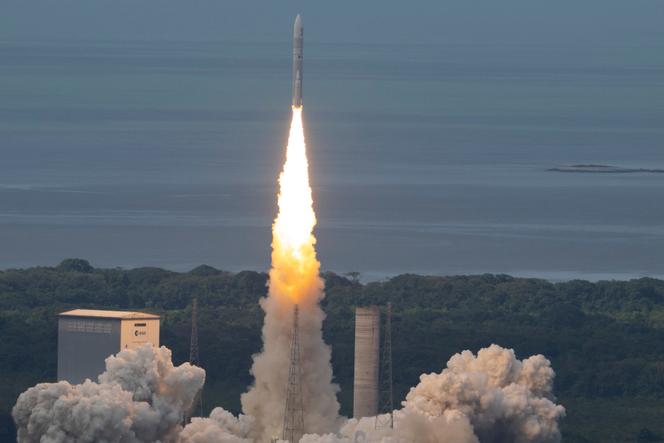


Europe's new Ariane 6 rocket blasted off for the first time smoothly on Tuesday, July 9, carrying with it the continent's hopes of regaining independent access to space.
The much-delayed inaugural flight of the European Space Agency's most powerful rocket yet launched from Europe's spaceport in Kourou, French Guiana at 4 pm local time. Crews on the ground at the launch site, which is surrounded by jungle on the South American coast, applauded as the rocket soared into clear skies.
Ariane 6's first launch, which was originally planned for 2020, is hoped to bring an end to a difficult time for European space efforts. Since the last flight of its workhorse predecessor, Ariane 5, a year ago, Europe has been unable to launch satellites or other missions into space without relying on rivals such as Elon Musk's US firm SpaceX.
ESA chief Josef Aschbacher said it was a "very important moment for Europe". "We are re-establishing independent access to space for Europe," he said just before the launch.
Earlier Tuesday, the giant metal structure housing the rocket was rolled away, unsheathing the 56-meter behemoth in light rain, an AFP journalist observed. After a positive weather report, the rocket's tanks were filled with liquid hydrogen and liquid oxygen.
The planned time for liftoff was delayed by an hour after routine checks revealed a small data issue that was resolved, according to the ESA.
Tony dos Santos, Kourou technical manager, said that teams on the ground would only be able to "breathe our first sigh of relief when the first satellites have been released".
In Kourou, more than 200 experts were concealed in a bunker near the launch site, checking for any potential problems before liftoff. They were in constant contact with the Jupiter control room, the communications hub between the teams – and data sent from the rocket.
A large number of armed forces also watched over the launch, including three fighter jets deployed to deter any curious aircraft nearby.
Successful inaugural flights are by no means guaranteed. Historically, nearly half of the first launches of new rockets have ended in failure. That includes Ariane 5, which exploded moments after liftoff in 1996. But out of 117 launches over nearly 20 years, only one other Ariane 5 flight completely failed.
